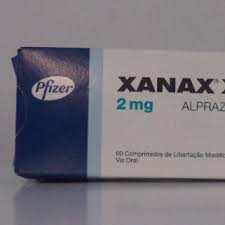Xanor (2mg tablet x 30)
$100.11
Xanor is a brand name for a medication called alprazolam, which belongs to a class of drugs known as benzodiazepines. It is primarily used to treat anxiety and panic disorders, as well as anxiety associated with depression. Xanor works by enhancing the activity of a neurotransmitter in the brain called gamma-aminobutyric acid (GABA), which helps to reduce feelings of anxiety and promote relaxation. This medication is only available by prescription and should be taken exactly as prescribed by a healthcare professional. It is important to follow all instructions provided and to avoid taking Xanor in larger amounts or for longer than recommended.




